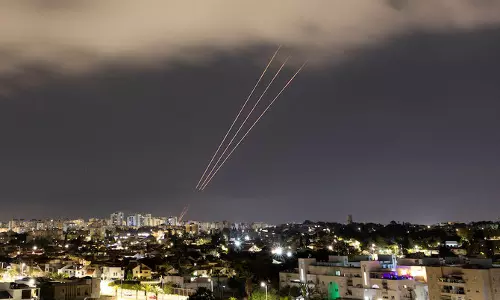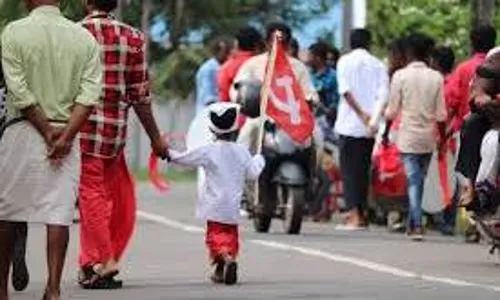
Who will benefit from Owaisis' entry in Bihar?
text_fieldsIt was not long ago when Asaduddin Owaisi and his brother Akbarudin Owaisi romped home to heroes' welcome in Maharashtra. In the assembly elections last year in one of India's most industrialized states, the Majlis Ittehadul Muslimeen (MIM) party won two seats and was runner-up in four places. The rabidly communal party that was limited to Old Hyderabad had conquered a new citadel -- and smashed Congress hopes.
And after the MIM's spectacular performance in local bodies and corporation elections in Maharashtra, the MIM has turned its attention to northern India including Uttar Pradesh, Delhi and Bihar. In many areas of Uttar Pradesh, it is trying to spread its tentacles, and successfully.
In July, Asaduddin Owaisi received a rousing welcome wherever he went in western Uttar Pradesh. Mulayam Singh Yadav, the Samajwadi Party patriarch who lost the plot in the 2014 Lok Sabha polls, seems to have sensed the danger.
Owaisi has said his party is serious in contesting elections in Uttar Pradesh. While Uttar Pradesh polls are two years away, secular parties in neighbouring Bihar are already scared.
Owaisi is going to be both a dividing and a uniting factor in Bihar. While he can divide the Muslim voters, he is going to help the Bharatiya Janata Party (BJP) consolidate Hindu votes behind it. There is no denying the fact that the one party extremely happy over Owaisi's entry into Bihar is the BJP.
While Muslim leaders in Uttar Pradesh are speaking out against Owaisi and his brand of hate politics, those in Bihar don't want to talk about him, lest he get further media attention. Ahmed Hasan, the health minister in the Akhilesh Yadav government, is very blunt. He calls Owaisi a BJP agent and that Muslims are not gullible to be swayed by rabble rousers like him.
Azam Khan, another senior Muslim leader in the state, also claims that Owaisi is a BJP agent. Addressing a Muslim gathering recently, he said the Owaisis were doing the BJP's bidding.
Now Muslims in Bihar are worried. They believe that the Owaisis entry will divide Muslim votes and his rabble rousing speeches tinged with communal rhetoric will consolidate Hindu votes behind the BJP.
And the man who is grinning from ear to ear is none other than Amit Shah, the wily BJP president who sees his chances brightening in a state where most pre-poll surveys gave the RJD-JD-U-Congress alliance an edge. Those surveys were done long before Owaisi's entry and the rousing welcome that he got in areas like Kishanganj.
A few more tours by the Owaisis can ensure a huge chunk of Hindu votes shifting to the BJP. Muslim votes will also get divided as the youths see Owaisis as their messiah who speak in tit-for-tat lingo. It is about time Muslims realized he is not a messiah and his brand of communal politics will make India unlivable.
Muslim leaders of the past had realized this threat. On December 28, 1947, S.A. Barelwi and Maulana Ahmad Said, vice president of Jamiatul Ulama, advised Muslims to dissolve communal groups. "The time has come when Muslims of all shades of opinion must take a united decision to abjure communal politics which, far from serving the real interest of the masses and affording them necessary protection and security, (tends) to encourage social and political reactions and injure national life by encouraging false and unnatural divisions and fostering hatred and suspicion among different communities."
(Syed Ubaidur Rahman is a New Delhi-based columnist and author. The views expressed are personal. He can be reached at syedurahman@gmail.com)























